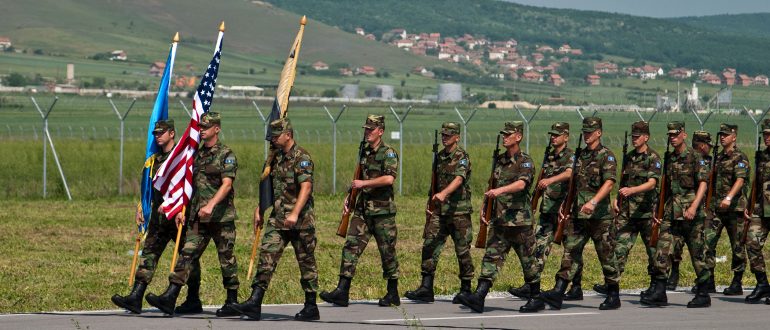
Kosovo at a Dead End
Corruption, clientelism and patronage have led Kosovo into stagnation. More than a quarter of the population lives in absolute poverty, ten percent even have to get by on less than a dollar per day. Europe’s youngest population is also its poorest, despite the largest state-building effort in the history of the EU. In 2015, Kosovo was in the third place in terms of the number of initial applications for asylum, right after Syria and Albania and before Afghanistan. And the bitter truth is: We are sending people back to a dead end that we have created ourselves.
THE PATH TO STAGNATION
For Albanians in the country, the Kosovo War (1998/1999) is not only a heroic founding event but also the birth of today’s hybrid democracy that is being dominated by patron-client relationships. The (disputed) massacre in Raçak moved NATO to undertake an unsanctioned military intervention against Serbia in March 1999, which had established an apartheid system in Kosovo decades before. The KFOR Kosovo troops then secured the weak peace and the United Nations (UN) set up an interim government (UNMIK) that was hardly democratic. The Special Representative of the Secreteray General (SRSG) combined virtually all administrative, legislative and judicial functions in one person. The mission staff also enjoyed immunity, resulting in numerous intransparent deals, if not corruption. Guess why Kosovo’s mobile phone code is the same as Monaco’s? Because Bernhard Kouchner, then SRSG, favored a French company when the country needed a new network – and this company, which was more expensive than its German competitor, chose Monaco. In terms of economic policy, there was no concept for reconstructing the country: Without significant investment in manufacturing, the market was liberalised and employees’s rights were cut back even further. The “UN Protectorate” worsened the problems created by Slobodan Milošević and its undemocratic structure proved to be a bad role model for a society prone to in-group favoritism. This legacy outlasted Kosovo’s declaration of independence as even the European Union rule of law mission (EULEX) has been repeatedly confronted with accusations of corruption.
The international community made another mistake by co-opting the former commanders of the paramilitary UÇK. Thus, the insider relationships of old war comrades gradually took over the political game. As one study by the Clingendael Institute notes, this takeover has “proceeded from wartime accumulation via transnational trafficking to political power, and from then into business“. Up to the most recent elections in 2014, the parties created by former UÇK commanders were always involved in forming the government and provided four out of five prime ministers. Before elections, Hashim Thaci regularly promised to increase the salaries of civil servants. After his electoral victory in 2007, the key positions in state-run companies, ministries and public authorities were filled with party members. Further, loyall businessmen were rewarded with state contracts and electoral strongholds received the highest investment per capita. The new parties serve to guarantee the access to power and business.
Against this background, it is not at all surprising that the former head of the EULEX economics department, Andrea Capussela, described Kosovo as a failed state. Of course, neither the EU nor the UN can be made responsible for the poor conditions that they found in the country when their mission started. But if we do not clearly see our mistakes, we will never really understand the nature of the dead end that people are now trying to escape.
This article is part of IFAIR’s cooperation with the Diplomatic Magazine and was published there first in the issue 03/2016.
